Monday, September 10th 2018

First Intel Core i7-9700K Review Surfaces
Spanish language tech publication El Chapuzas Informático published the first almost-complete review of Intel Core i7-9700K processor. Without Intel disclosing the pricing of this chip, the review doesn't include price/performance numbers or a conclusion that explores the competitive landscape. You still get a sumptuous serving of 14 tests, from which 9 are some of the latest AAA games.
The bottom-line is that the i7-9700K locks horns with the Ryzen 7 2700X in most multi-threaded tests except Cinebench nT; and owing to its high clock speeds, it will end up as the fastest gaming processor around the $350-400 mark. Interestingly, the i7-9700K isn't 33% faster than the i7-8700K despite 33% more cores, because HyperThreading is sorely missed. The distinction could be reserved for the Core i9-9900K, although samples of that chip are far too rare.More graphs follow.
Source:
El Chapuzas Informático
The bottom-line is that the i7-9700K locks horns with the Ryzen 7 2700X in most multi-threaded tests except Cinebench nT; and owing to its high clock speeds, it will end up as the fastest gaming processor around the $350-400 mark. Interestingly, the i7-9700K isn't 33% faster than the i7-8700K despite 33% more cores, because HyperThreading is sorely missed. The distinction could be reserved for the Core i9-9900K, although samples of that chip are far too rare.More graphs follow.
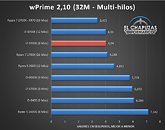
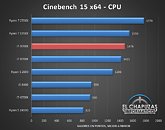
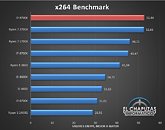
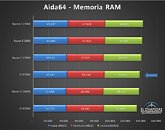
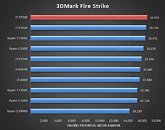
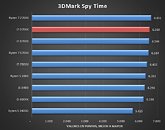
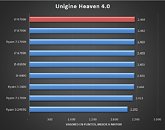
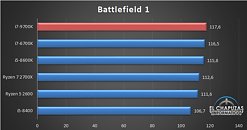
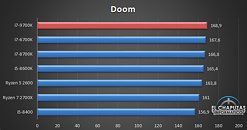
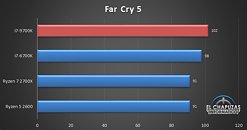
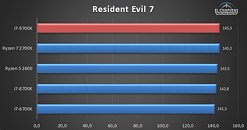
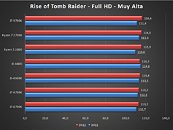
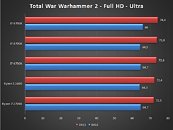
88 Comments on First Intel Core i7-9700K Review Surfaces
But when you're comparing similarly priced CPUs and one gives more performance, you go for the best performing one.Well, gains beyond 2666 MHz DDR4 in gaming are more like 1-2%, well within the margin of error, except for a few edge cases. It's simply pointless.
But more importantly, running memory at higher speeds depends on both motherboard support and the die quality of the CPU. Even if you buy a kit with a high rated speed and a motherboard which supports it, there is no guarantee you will be able to run in. And even if you do so, it will probably not be stable for years of load. High speed memory is probably the primary thing gamers waste money on.Ryzen on 7nm (Zen 2) is still far away, and it will primarily compete with Intel's Ice Lake.HEDT: Skylake-X/SP -> Cascade Lake-X/SP(14nm 2018) -> Cooper Lake-X/SP (14nm 2019) -> Ice Lake-X/SP(10nm 2020)
Mainstream: Coffee Lake/Cannon Lake/Whiskey Lake -> Ice Lake (10nm 2019) -> Tiger Lake (?) -> Sapphire Rapids (?)
The 8 core CPU's will be fast for sure and will beat out the 2700X purely because of clock speeds.
Intel is better at gaming because ring bus and 10yrs of better support most likely
I hope they can solve their 10nm problems, this is getting boring and repetitive.
Maybe you think I am insulting this webpage or something, but the truth is you don't know what you are talking about, you don't know that webpage, you don't know how bad their "reviews" are, you don't know anything about it, so shut up and go to cry elsewhere.
Also 8700K is using pigeon poop.
8700K has worse gaming performance with HT enabled. 9700K is going to be an insane gaming chip, easily beating the 8700K here.
It will also beat the 8700K in content creation. Real cores >>> HT/SMT any day.
Good for gaming which I was thinking it would be, but multi tasking is down alot more then I would of expected.
As far as Intel "competing" ... with 79.3% market share and on an upswing over the last year, seems they doing just fine. OTOH, AMD has dropped from 22.3% in Q3 2017 to 20.7 in Q3 2018.... holding their own and still up from Q3 2016 but not exactly "nailing it"
So yeah, it kinda does.